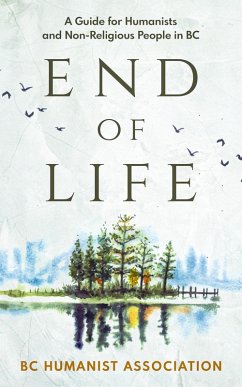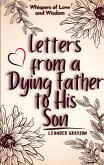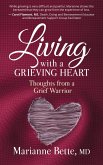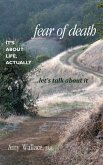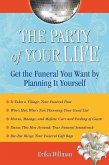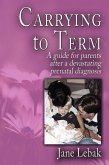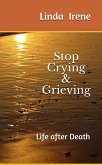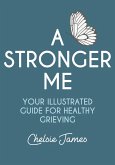Humanism is a philosophy of life that asserts you can be an ethical person without belief in a god. Humanist thinkers have been around for centuries, promoting human rights, scientific thinking, and reason. If you haven't heard the term before and you are thinking, "I support all those things!" then you might be a humanist.
Most British Columbians are non-religious and many are probably "secular humanists."
This end-of-life guide is for those who want to learn more about non-religious (humanist, atheist, agnostic) perspectives on death, prepare for the end of their own life in a non-religious way, or witness a non-religious friend or family member at the end of their life.
We start by exploring some of the philosophical ideas around death from a humanist perspective. We then consider mental wellbeing at the end of life, and the role of emotional support for both the dying and their loved ones. The next section provides a more practical exercise to help you plan for your own death through "advance care planning." Then we look at some healthcare issues that arise at the end of life, from palliative care to medical assistance in dying (as it exists in Canada). Our last section looks at death itself, which will likely take place during several overlapping crises. The guide ends with an extensive list of resources for these topics.
We hope that this guide provides you with support, advice, and comfort during the end-of-life and grief process. We encourage you to share it with your friends, family, and others. And if you have thoughts or comments about this guide, feel free to reach out to us at the BCHA to help us improve our materials.
The first edition of this guide is also available in an audiobook format which can be found on the BC Humanists Podcast, via our website. This updated second edition features new sections on non-religious philosophical approaches to death and dying, updates on the changing laws governing medical assistance in dying in Canada, contributions from new writers and editors, an expanded section on death during crises, and more.
Most British Columbians are non-religious and many are probably "secular humanists."
This end-of-life guide is for those who want to learn more about non-religious (humanist, atheist, agnostic) perspectives on death, prepare for the end of their own life in a non-religious way, or witness a non-religious friend or family member at the end of their life.
We start by exploring some of the philosophical ideas around death from a humanist perspective. We then consider mental wellbeing at the end of life, and the role of emotional support for both the dying and their loved ones. The next section provides a more practical exercise to help you plan for your own death through "advance care planning." Then we look at some healthcare issues that arise at the end of life, from palliative care to medical assistance in dying (as it exists in Canada). Our last section looks at death itself, which will likely take place during several overlapping crises. The guide ends with an extensive list of resources for these topics.
We hope that this guide provides you with support, advice, and comfort during the end-of-life and grief process. We encourage you to share it with your friends, family, and others. And if you have thoughts or comments about this guide, feel free to reach out to us at the BCHA to help us improve our materials.
The first edition of this guide is also available in an audiobook format which can be found on the BC Humanists Podcast, via our website. This updated second edition features new sections on non-religious philosophical approaches to death and dying, updates on the changing laws governing medical assistance in dying in Canada, contributions from new writers and editors, an expanded section on death during crises, and more.
Dieser Download kann aus rechtlichen Gründen nur mit Rechnungsadresse in A, B, CY, CZ, D, DK, EW, E, FIN, F, GR, H, IRL, I, LT, L, LR, M, NL, PL, P, R, S, SLO, SK ausgeliefert werden.

